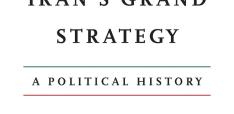Outrage at Munich

Amrita Narlikar argues that while U.S. Vice President J.D. Vance’s speech at the Munich Security Conference stirred outrage in Europe, it also introduced valuable perspectives that deserve attention.
Following the World Economic Forum that convenes at Davos, another jamboree takes place in Munich. There is usually a fair overlap of key protagonists in the two settings, plus an additional, safe familiarity of reliable faces that have been invitees for years (and sometimes, decades) in the respective forum. For all the resources guzzled in organizing these events and media coverage surrounding them, they tend to be tame affairs involving men and women in expensive suits, who speak politely of reforming the system and then return home to business as usual. So the speech delivered by U.S. Vice President, J.D. Vance, on 14 February, at the Munich Security Conference, has shaken many of the global elite to the core.
The anger is undisguised, especially among the Europeans. The German Defence Minister, Boris Pistorius, to great applause, described Vance’s critique as “not acceptable”. For the European Foreign Policy chief, Kaja Kallas, the speech sounded as if “… they try to pick a fight with us…”. The German Chancellor pushed back firmly and said that neither Germany nor Europe would accept outside interference (especially not from friends and allies). Social media platforms are alight with indignation against Vance. Why has the speech ruffled so many feathers?
First, Vance, delivering his speech with aplomb, had the temerity to articulate a view that few dare to voice publicly: democratic backsliding (not in the Global South, as is common practice for Western actors to bemoan), but in Europe’s heartland. While Europe’s political establishment is unreserved in criticising the state of democracy, pluralism, and liberalism in the rest of the world, it obviously resents being at the receiving end of similar scrutiny and commentary.
Second, Vance went a step further: he framed his speech in terms of shared Transatlantic values. There is legitimate concern that Trump’s transactionalism may result in a sidelining of global norms; that his Vice President embraces the language of values should have been welcomed with open arms. But “normative power Europe” seems to think it is the sole proprietor and representative of values.
Third, Vance, made only one passing reference to Russia and Ukraine in his speech in the context of reaching a “reasonable settlement” between the two, and urged Europe “to step up in a big way to provide for its own defence”. While many European leaders acknowledged the importance of burden-sharing as part of their NATO membership, the MSC audience at large seemed shocked and disappointed that Vance’s speech had incorporated merely such a cursory reference to the war on Europe’s borders. These are typical European double standards at work, already called out by the Indian Minister for External Affairs, Dr S. Jaishankar in 2023: Europe has the mindset that its “problems are the world’s problem, but the world’s problem are not Europe’s problem.” Now that we finally have an administration that wants to ensure a division of labour between Europe and the US, with the latter focusing on the China challenge in the Indo-Pacific, Europe finds itself in a deeply uncomfortable position.
Finally, Vance poked a hornet’s nest by referring to the challenges of “mass migration” in Europe, and made himself an easy target for the moral outrage of self-righteous, self-styled liberals. His speech could have certainly done with more nuance on this question of existential importance to many – including the emigrants who endure great dangers in the hope of reaching countries of safety and opportunity, and then end up facing xenophobia and worse. But a much more serious discussion is need on both legal and illegal immigration in Europe. Simply pretending that the problem does not exist, and demonising Vance for his critique, helps no one.
Vance’s comments on the fragilities of European democracy hit too close to home. The great and the good of Europe seem to resent Vance’s “physician, heal thyself” approach, doubly so perhaps because it makes it difficult for a governing elite to deflect attention away from serious domestic problems.
Viewed from outside Europe, Vance’s speech offered some refreshing perspectives. Instead of a Transatlantic club of mutual admiration, with the rest of the world excluded from the party, something more interesting could be in the offing. This is not a US that is trying to destroy Europe or NATO (contra what some of the social media frenzy has suggested), but a mature power that recognizes both the worth and the limitations of Transatlantic partnership. If the EU opens up to some self-reflection, which it often demands from the Global South, it could build a more honest and lasting Transatlantic alliance that also welcomes other like-minded partners (including India).
Vance’s speech told us something reassuring about America’s continued attachment to values. This will be one of several reasons why the US is likely to want to deepen its relationship with the world’s largest democracy. But the speech, and the reaction it generated, also ended up revealing a great deal about Europe’s political landscape. Vance, through is MSC speech, held up a mirror to Europe. The indignation exploding in Europe and beyond is simply the rage of Caliban seeing his own face in the glass.
Amrita Narlikar is a Distinguished Fellow, Observer Research Foundation and Honorary Fellow, Darwin College, University of Cambridge.
This first appeared on the Observer Research Foundation.
Image: Airman 1st Class Colin Simpson, Public domain, via Wikimedia Commons.


